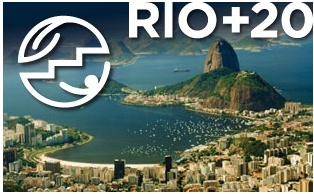Rio+20 – changing the world through fashion?

As a follow-up to the world’s largest summit on sustainable fashion, Copenhagen Fashion Summit, which was held in Copenhagen last month, the Danish Fashion Institute will be running an official event during the upcoming United Nations Conference on Sustainable Development, Rio+20, in cooperation with the Danish Ministry of Climate, Energy and Building.
Conference speakers include international fashion houses such as Gucci, Katharine Hamnett and H&M, as well as other members of the industry ready with specific solutions to the challenges the industry faces, for example Novozymes. The director of the Danish Fashion Institute, Eva Kruse, who will be opening the event in Rio, would like to see the green profile Denmark has been known for for many years spread to the fashion industry.
She explains: ”We are proud that Denmark is leading the way in developing a more sustainable and socially responsible global fashion industry. We will bring, among others, two major initiatives with us to Rio: one is the fashion industry’s recommendations on how consumers can become involved in driving change in the fashion industry and the other is the first-ever industry-specific code of conduct initiative under the UN Global Compact programme. Both initiatives are products of a Danish-led international process that has significant global perspectives and may become a landmark for how governments, industries and communities take action in the future”.
The fashion industry, one of the world’s most polluting and resource-intensive industries, uses vast amounts of water and energy. Both the production of clothes and the way we use clothes have a huge impact on our climate. Washing clothes, for example, at 30° instead of 40° would, simply on a European scale, mean annual savings equivalent to Ireland’s entire energy consumption. Both the industry and consumers, in other words, exert a heavy influence. According to Danish Minister of Climate, Energy and Building Martin Lidegaard, one of the things that makes the fashion industry’s initiative so interesting is the opportunity it provides to articulate the options consumers have to act proactively on climate change:
“Fashion is a highly visible industry that people can relate to and understand. The climate debate has a tendency to only deal with technical interventions such as turbines and heat pumps, but fashion can make everything more tangible for the individual. The fashion industry also affects social currents and thus other industries, which is why the fashion industry is unique when it comes to spreading sustainable change to the rest of society. Meanwhile, fashion is also great in terms of focusing on our consumption and its effect on the climate”.
The Danish Fashion Institute event at the Rio+20 summit will take place on 18th June 2012 in Rio from 9:00 am to 12:30 pm at Windsor Barra Hotel.





